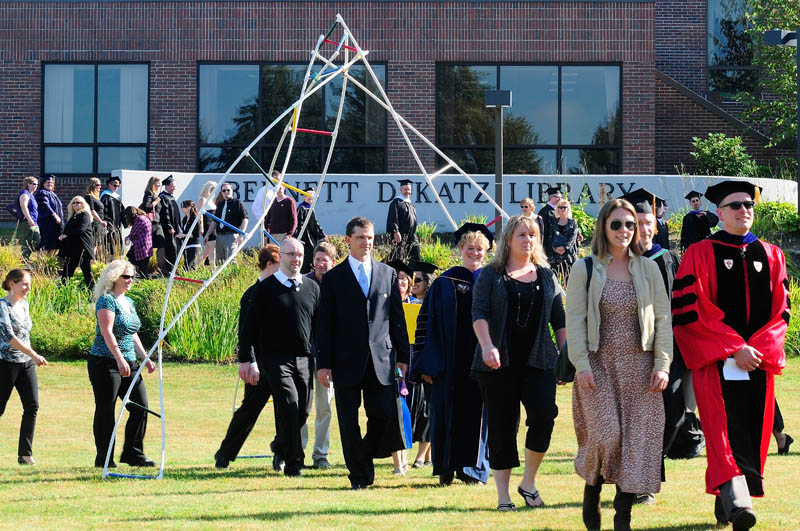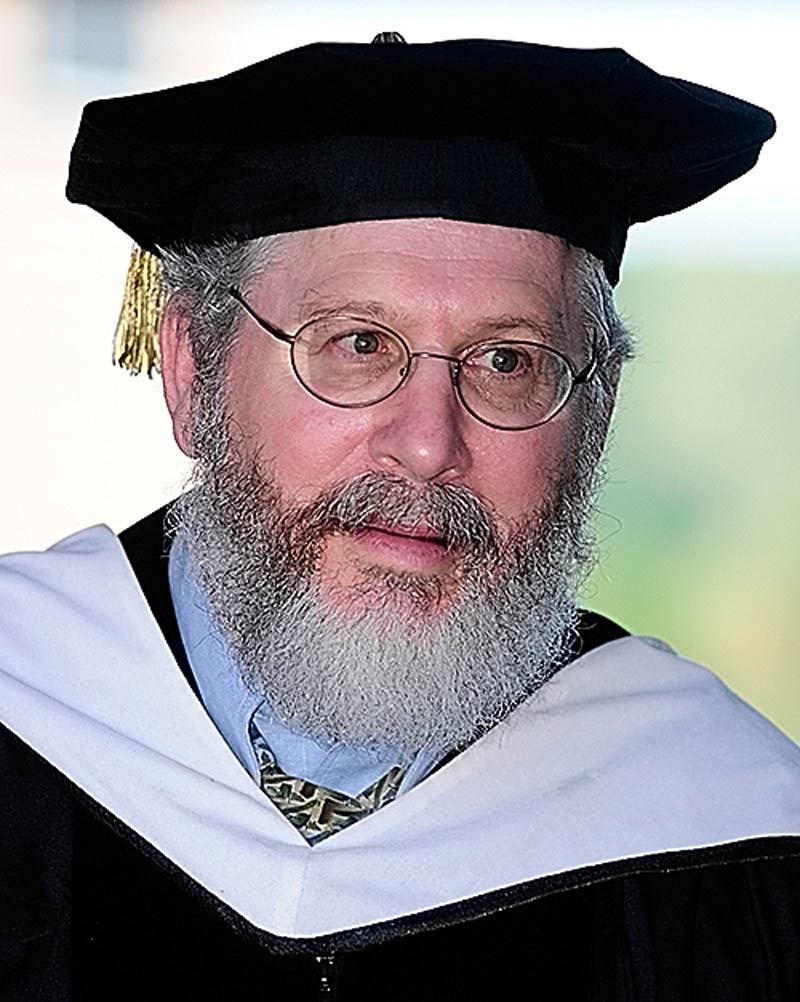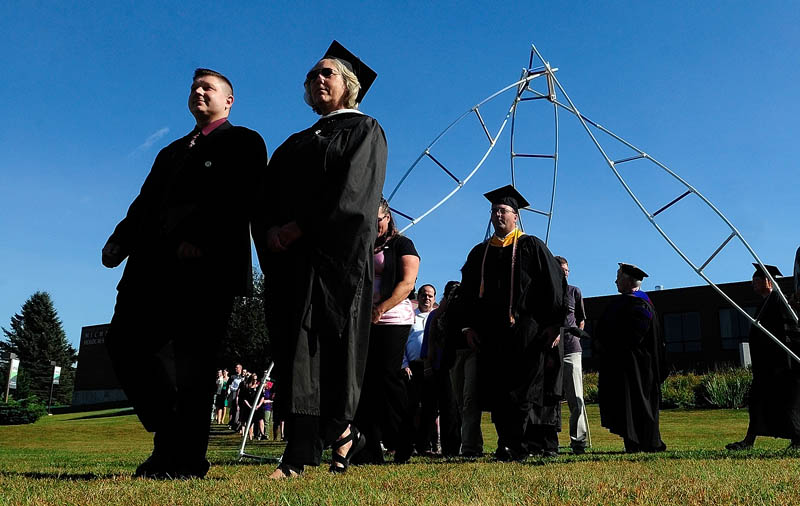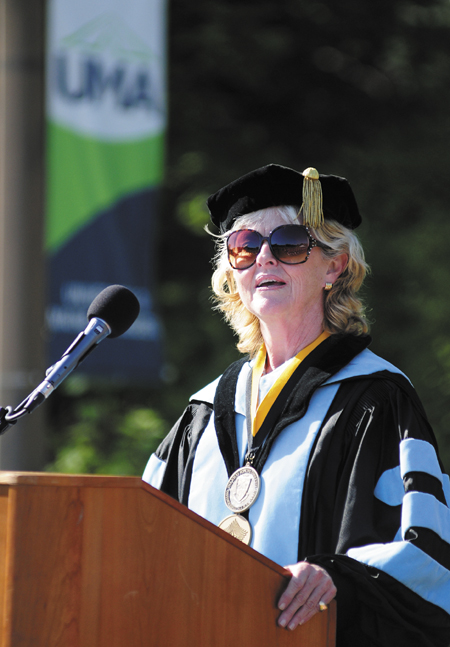AUGUSTA — There are likely to be many difficult conversations at the University of Maine at Augusta this year about life and death, health care, genetic engineering.
This year’s theme is bioethics, and associate philosophy professor Greg Fahy said the subject is important because nearly everyone faces a bioethical dilemma concerning either themselves, their parents or their children and they are rarely prepared to make difficult decisions when they arise.
“Even when we have time and energy to consider these questions, they do not yield easy answers,” Fahy said during UMA’s Convocation today. “I can’t tell you how many times good students have come up to me after my bioethics course saying things like, ‘I’m more confused now when I started.'”
Convocation is UMA’s biggest academic event of the year, used to recognize promising students and distinguished faculty members, as well as to launch the academic theme each year.
Faculty members and students walked in side by side, passing underneath a student-created sculpture resembling DNA strands. About 500 people attended the event, including faculty members, students and their relatives.
Bioethics will be discussed in a variety of courses and events at UMA this year. Today, there was a lunchtime discussion at the Holocaust and Human Rights Center about the legacy of the Holocaust in the field of bioethics, including the Nuremberg Code, principles for human experimentation that were set up after atrocities by Nazi doctors were revealed at the Nuremberg trials after World War II.
At another discussion earlier in the week, assistant nursing professor Carey Clark talked about the results of a survey that detailed UMA students’ bioethical concerns. Those concerns included food safety, stem cell research and the use of 3-D printers to create organs for transplantation.
Along with the theme, UMA’s Colloquium Committee chose a book for people at the university to read: “The Immortal Life of Henrietta Lacks,” by Rebecca Skloot.
Skloot’s book tells the story of a a black mother of five whose cells were harvested without her knowledge when she was being treated for cervical cancer at a segregated Baltimore hospital in 1951. The cells were replicated to create a cell line that has been used thousands of times in biomedical research, including the development of the polio vaccine. Her family didn’t learn about this until the 1970s, and they never benefited from the financial value of the cell line.
In fact, as professor of justice studies Mary Louis Davitt explained, the consent forms for many medical procedures give health care institutions ownership of tissue or blood taken during the procedure, so there’s no provision for patients to benefit financially from research. Davitt questioned whether that really constitutes informed consent when it’s a condition for life-saving procedures.
The keynote speaker, Boston University professor Michael Grodin, said questions of bioethics receive much more attention than they once did because advances in medicine and technology have created so many new possibilities.
“With the potential effect of the beneficial technologies we have now, the question is not what can be done, but what should be done,” Grodin said. “Just because we can use technologies does not mean that we ought to. The question of who should decide and what should be done is a bioethics question.”
Grodin regularly encounters difficult dilemmas as an ethics consultant for Boston Medical Center. One situation involved a brain-dead woman who was 22 weeks pregnant. Another was a child with five “parents”: the egg donor, the sperm donor, the surrogate who carried him and the two people raising him.
Having the facts isn’t enough in bioethics, Grodin said, because opposing values lay the groundwork for strong arguments in favor of multiple courses of action.
“One of the easiest ways you know you’re dealing with a moral dilemma is that everybody is upset,” he said. “And the reason everybody’s upset is that it’s not clear what the right course is.”
Susan McMillan — 621-5645
smcmillan@mainetoday.com
Send questions/comments to the editors.






Success. Please wait for the page to reload. If the page does not reload within 5 seconds, please refresh the page.
Enter your email and password to access comments.
Hi, to comment on stories you must . This profile is in addition to your subscription and website login.
Already have a commenting profile? .
Invalid username/password.
Please check your email to confirm and complete your registration.
Only subscribers are eligible to post comments. Please subscribe or login first for digital access. Here’s why.
Use the form below to reset your password. When you've submitted your account email, we will send an email with a reset code.